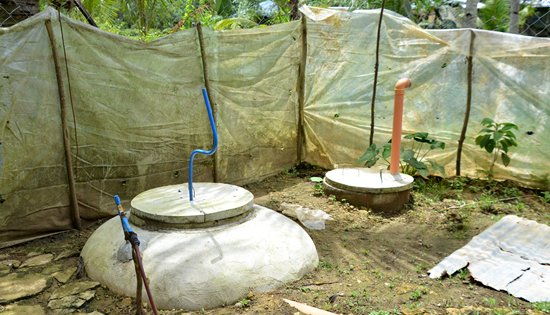
A
closer look of the bio-gas digester. |
Animal waste: An
alternative fuel
By
FEBE MARIE BERSABAL
February 23, 2018
TACLOBAN CITY –
Three farming communities in Southern Leyte were relieved somehow
from using expensive fuel in cooking.
This after the Department
of Agrarian Reform (DAR) introduced to the residents of three remote
villages in the City of Maasin and the towns of Hinunangan and Tomas
Opus the Community-managed Potable Water and Sanitation Hygiene (CPWASH)
project, a new approach in delivering water, energy, health and
sanitation in the countyside by using available resources in the
community.
CPWASH has four
sub-projects – the rain water collector, the bio-sand filters, the
iron removable filters and the bio-gas digester.
Under the last
sub-project, no one in these villages ever thought that the wastes
of their pigs can be transformed into an alternative fuel.
Virginia Dueñas, one of
the recipients of the said project in Barangay Hantag, Maasin City,
disclosed that they no longer use firewood or LPG (liquefied
petroleum gas) in cooking after this project was introduced to them
by DAR. According to her, they can now save around P700 a month for
they no longer buy LPG.
Their income likewise has
increased as they are forced to raise more pigs in order to gather
sufficient organic wastes that would be turned into fuel.
CPWASH project coordinator
Julius Monge explained that animal wastes are fed and collected in
the bio-gas digester, that in turn, produce methane gas through
anaerobic digestion.
Further, under the CPWASH
project rural folks were also trained how to construct bio-sand
filters and iron removable filters to make water from deep wells
potable.